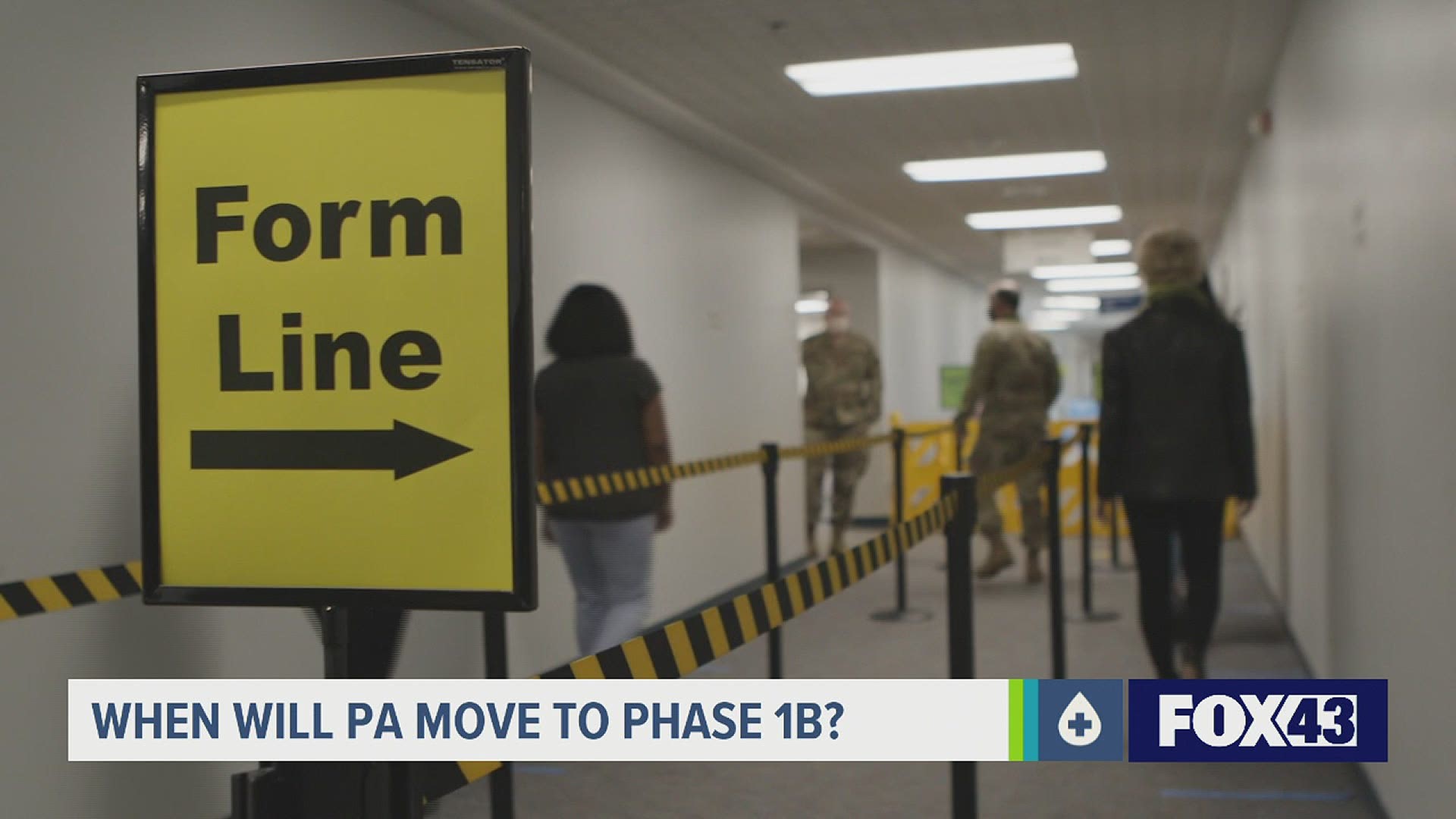LANCASTER COUNTY, Pa. — Monday morning, the Pennsylvania Department of Health touted its progress with the vaccine rollout: 1.7 million full vaccinations and counting.
Officials say the rollout is moving along,with more than 100,000 teachers and school staff vaccinated, and more expected to receive their shot this week.
If PA is so successful, why hasn't it moved into Phase 1B of the rollout, which includes first responders, agricultural workers, grocery store employees, and more?
"What we want to be sure of: When we move into Phase 1B, folks are actually able to get the shot. It's not just being put on another wait list," said Acting Health Secretary Alison Beam.
During a news conference at the Masonic Village in Elizabethtown in Lancaster County, Beam applauded the facility's vaccination efforts. According to workers, 96% percent of residents and more than 70% of employees have received their COVID-19 vaccine. However, when it comes to the state expanding its vaccine effort, Beam says it can't just happen overnight.
"Phase 1A still has significant demand," said Beam.
Governor Wolf's Administration has directed vaccine providers to clear their wait lists. It's tasking asking providers to schedule appointments for anyone who qualifies by Wednesday.
"We know wait lists feel ambiguous for people. A point in time, a date, a scheduled appointment gives them the peace of mind," explained Beam.
Following other gradual approaches throughout the pandemic, Beam says the state must ease into Phase 1B.
"We have to use the month of April strategically so there are not long lines come May 1," said Beam.
Throughout April, some of those people included in Phase 1B will be able to get their vaccine.
"Educators and child care providers were first with Janssen vaccine. Next up, we have firefighters ,law enforcement officers, grocery store workers, and food processors be the next group of folks that get vaccinated," said Beam.
By May 1, Beam anticipates the rest of the group, including, correctional officers, postal service employees, manufacturing workers, people in public transit, clergy, and more will be able to get their shots.

